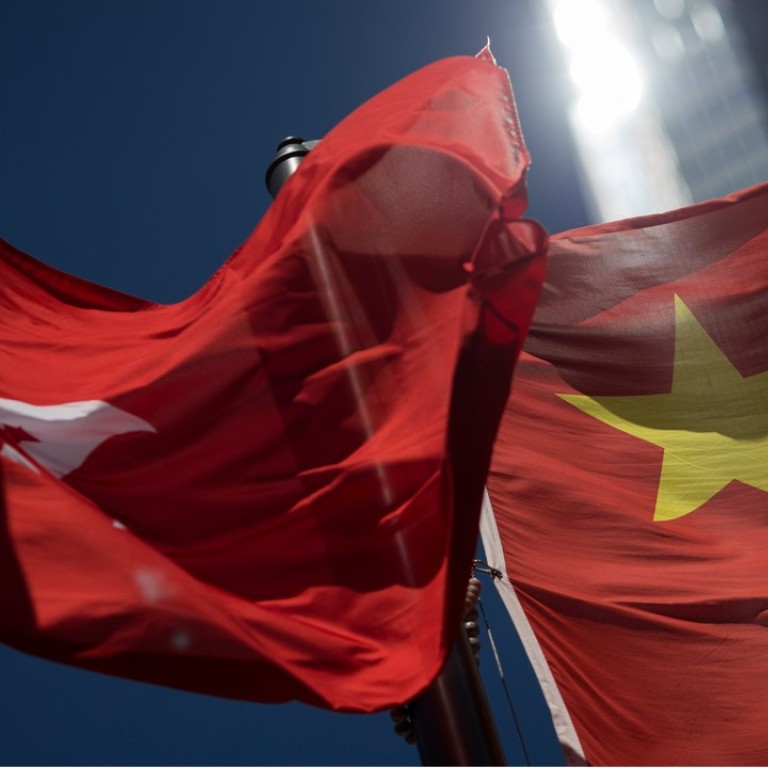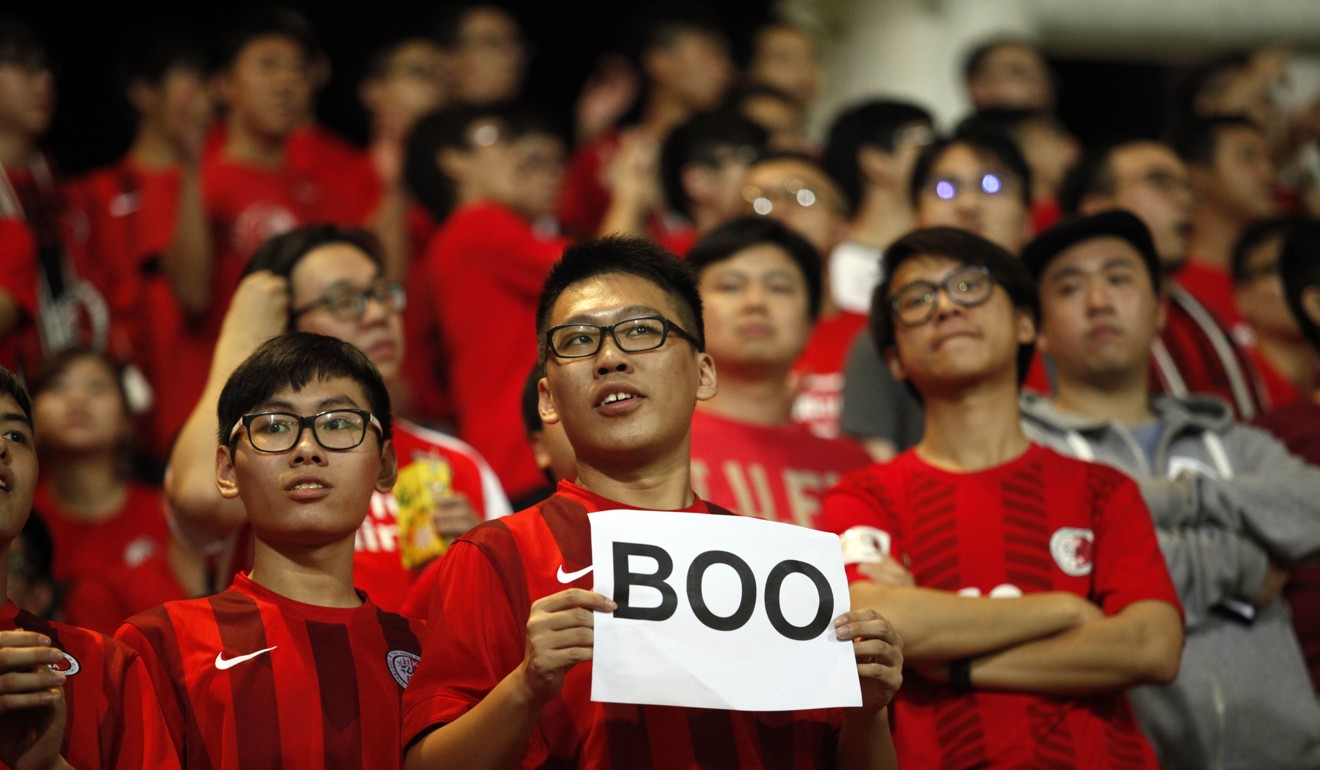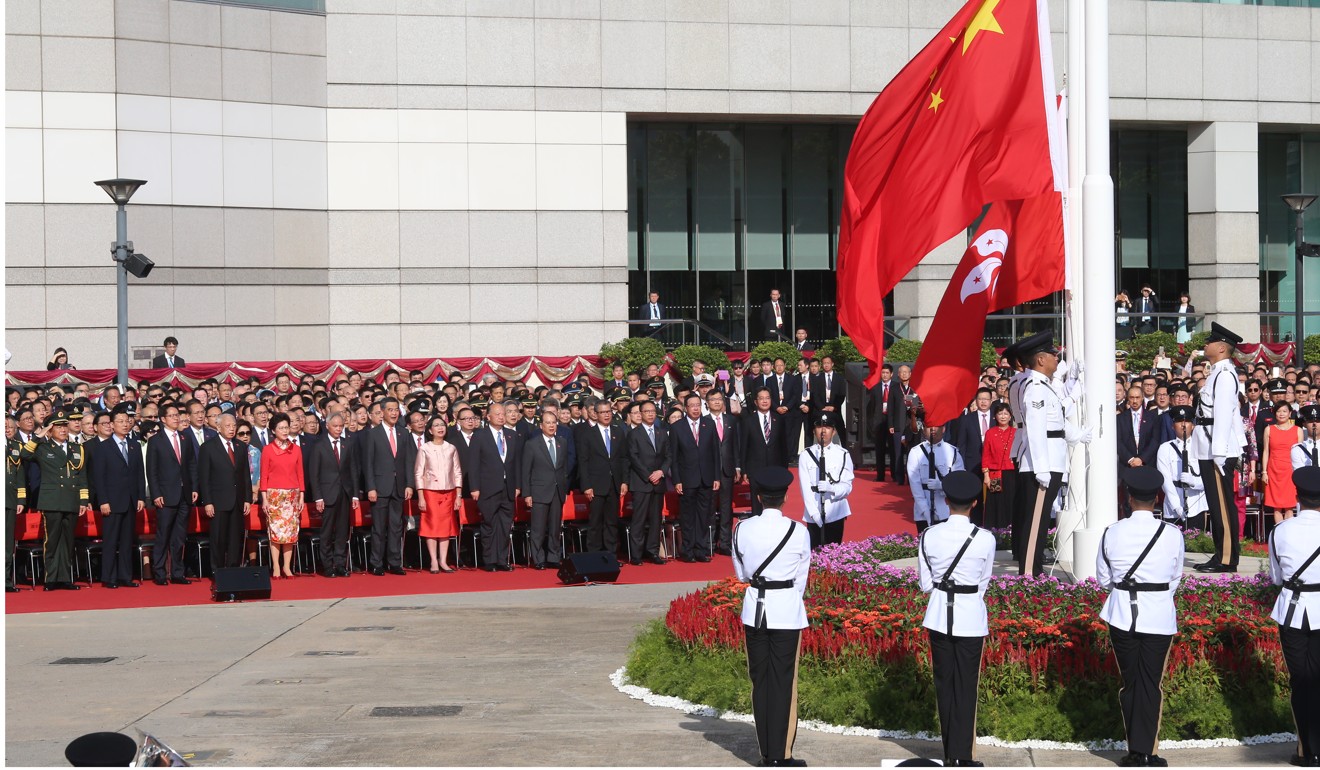
Intention key to determining whether national anthem insult in Hong Kong deserves jail time
Legco bill would also urge schools to teach pupils to sing and understand history of song, but disrespectful conduct not defined
China’s national anthem law will be adopted in Hong Kong without defining what constitutes an insult to the song, making the intention behind any perceived abuse crucial to deciding whether offenders should be jailed, according to a legislative proposal by the city’s government.
The bill that will localise the Beijing-imposed national anthem law will urge primary and secondary schools to teach pupils to sing and understand the history of March of the Volunteers, which is already happening in many schools as part of their curriculum.

According to an outline released on Friday, the local bill will make it a criminal offence to “publicly and wilfully alter” the anthem’s lyrics or score, perform or sing it in “a distorted or derogatory” manner, or insult it in any other way.
This would be in line with the current national flag and emblem ordinances already in force in the city.
The bill also states that the national anthem must not be used in commercial advertisements, at private funerals, as background music in public venues, or at any other occasion to be prescribed by the city’s leader.
National anthem should start on the right note in Hong Kong
After the bill is approved, the chief executive will prescribe that the anthem must be performed on occasions such as National Day on October 1, and the anniversary of Hong Kong’s handover from British to Chinese rule on July 1.
It would be unlikely for ordinary residents to break the law easily or accidentally
A government source said the provision on criminal liability would apply to acts in public as well as on the internet, but he admitted the bill would not define what constituted a “derogatory or insulting manner”.
Whether an act would be considered derogatory “depends on the intention and effect of the person’s act”, he said, adding “it would be unlikely for ordinary residents to break the law easily or accidentally”.
The source noted that if a group of soccer fans booed during the playing of the anthem, which has happened regularly in the city, they would be more likely to be deemed to have broken the law than an individual coughing at that moment, for example.
Similarly, restaurant-goers would be unlikely to land in trouble for continuing with their meal when the anthem is playing on television, but waving a middle finger in that direction would be a different matter, he added.
The source also suggested that if composers or songwriters loved China, they should not use or alter any part of the lyrics or melody of the anthem and publicise it.
Anthem law will not define disrespect, but study under way to educate Hong Kong kids on song, source says
While such restrictions would raise concerns about artistic freedom among satirists and artists, he was of the opinion that authorities would neither arrest nor prosecute anyone unless it could “be proven beyond a reasonable doubt” that a person had intentionally abused the anthem.
Civic Party leader and barrister Alvin Yeung Ngok-kiu said it remained unclear how “wilful distortion or insult” could be defined under the law.

“There is still much grey area ... and issues that require further clarification,” Yeung said. “The bill will prompt caution and make a lot of people stay away from touching the national anthem; I’m not sure if that’s beneficial to our creativity.”
However, Tam Yiu-chung, a local deputy to the National People’s Congress, said the city’s freedom of artistic expression would not be compromised, as police would enforce the law “professionally”.
Tam found it reasonable to teach students about the anthem.
“As Chinese, it is necessary that you know how to sing it,” he added.
The bill will further stipulate that secondary and primary schools must teach pupils to sing the national anthem, understand its history, and observe the etiquette when it is performed and sung, but the source insisted it was not an extra requirement for educators.
Most schools were currently required by the Education Bureau to do so already, he noted, with penalties under existing laws if they failed to comply.
Secretary for Education Kevin Yeung Yun-hung said he would discuss with private international schools how the anthem law would be applied to them.
Additional reporting by Kimmy Chung

